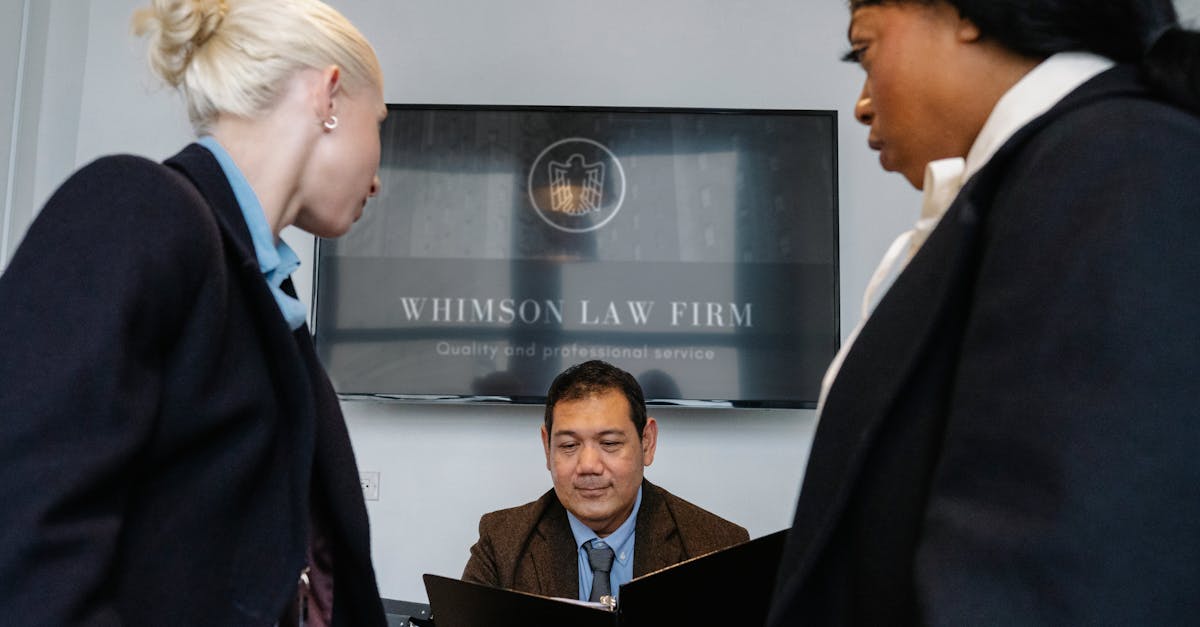
Precision Legal Advisors provides expert advice and guidance in all aspects of corporate law matters. Our team of experienced lawyers specializes in assisting businesses with a wide range of issues including corporate governance, compliance, mergers and acquisitions, contract negotiations, and regulatory matters. Whether you are a small start-up or a large corporation, we can help navigate the complexities of corporate law to ensure that your business is operating in a legally compliant manner. With our personalized approach and attention to detail, you can trust Precision Legal Advisors to provide the strategic counsel you need to protect and grow your business.
Employment Law and Personnel Issues
Employment law and personnel issues are paramount considerations for businesses of all sizes. Staying compliant with regulations and legal requirements is crucial in avoiding potential risks and liabilities associated with employment practices. Corporate attorneys specializing in this area provide invaluable advice and expertise to businesses, ensuring that they navigate the intricate landscape of employment law with confidence and diligence.
From salary negotiations to dispute resolution, corporate attorneys skilled in employment law offer comprehensive guidance to businesses in managing their employees effectively. In-house counsel and external legal advisors work tirelessly to safeguard their clients' interests while maintaining transparency and compliance with the ever-evolving regulatory framework. By staying abreast of the latest developments in employment law and personnel matters, businesses can proactively address potential issues and foster a harmonious work environment for their employees.
Addressing Legal Requirements for Employers
Employers face a myriad of legal requirements that need to be carefully navigated to ensure compliance and protect the business's reputation. From adhering to labor and employment laws to mitigating the risk of discrimination claims, employers must prioritize legal compliance in their decision-making processes. This includes understanding the legal obligations related to employee rights, wages, working hours, safety regulations, and anti-discrimination laws. Failure to meet these legal requirements can result in severe consequences, such as costly lawsuits, damage to the company's reputation, and potential closure of the business entity.
Ensuring that the company operates within the bounds of the law requires a proactive approach to legal compliance. Employers should seek legal counsel to provide guidance on best practices and strategies for risk management. Legal professionals can offer insight into federal laws, regulations, and industry-specific requirements that may impact the business operations. By implementing sound legal advice and practice, employers can safeguard their interests, maintain a positive work environment, and mitigate legal risks effectively.
Mergers and Acquisitions
When overseeing mergers and acquisitions, it is essential for corporate lawyers to ensure the seamless transition of businesses. This involves conducting detailed due diligence to identify any potential risks or issues that may arise during the transition process. By collaborating closely with all parties involved, lawyers can facilitate smooth transactions that uphold the legal rights and interests of the entities merging or acquiring.
One critical aspect of mergers and acquisitions is the protection of intellectual property. Lawyers play a pivotal role in safeguarding valuable assets and innovations by structuring comprehensive agreements that address ownership rights, licensing, and confidentiality. By navigating the complex landscape of intellectual property rights, legal professionals can ensure that the businesses involved maintain a competitive edge while upholding ethical standards and legal obligations.
Facilitating Smooth Business Transactions
Facilitating smooth business transactions is a critical aspect of corporate law. In the realm of mergers and acquisitions, it is imperative to conduct thorough due diligence to identify potential conflicts of interest and ensure compliance with legal requirements. Lawyers play a pivotal role in structuring deals, drafting agreements, and overseeing the transaction process to minimize risks and facilitate a seamless transition for all parties involved.
Furthermore, in the context of intellectual property protection, legal expertise is essential for safeguarding valuable business assets and innovations. Lawyers assist in drafting and negotiating agreements that protect IP rights, such as copyrights and trade secrets. By providing guidance on non-disclosure agreements, licensing arrangements, and infringement issues, legal professionals help businesses navigate the complexities of intellectual property law to mitigate risks and enhance the overall security of their valuable assets.
Intellectual Property Protection
Intellectual property protection is paramount for businesses seeking to safeguard their creations and innovations from unauthorized use. Valuation of intellectual property assets, such as trademarks, copyrights, and patents, is crucial to assess their worth accurately and ensure adequate protection. Implementing robust employment agreements and non-disclosure agreements (NDAs) can further fortify a company's intellectual property rights by outlining clear guidelines for employees and third parties regarding the handling and confidentiality of proprietary information.
Businesses face escalating risks of intellectual property theft and infringement in a highly competitive market environment. Therefore, it is imperative for companies to devise comprehensive strategies to mitigate such threats and uphold their proprietary rights. Engaging in arbitration or litigation, when necessary, can help enforce intellectual property rights and safeguard the competitiveness and exclusivity of a business's innovations. By proactively addressing intellectual property protection concerns, businesses can navigate potential legal disputes and preserve the value of their assets in the long run.
Safeguarding Business Assets and Innovations
Safeguarding business assets and innovations is paramount in today's competitive landscape. Protecting intellectual property rights, such as patents, trademarks, and copyrights, is crucial for businesses to maintain their competitive edge. Implementing thorough documentation, including non-disclosure agreements and confidentiality clauses in contracts, can help prevent unauthorized use or disclosure of sensitive information. Regularly reviewing and updating security measures, both physical and digital, can also mitigate risks associated with data breaches and unauthorized access.
Moreover, businesses should establish clear policies and procedures regarding the use and protection of assets and innovations. Training employees on the importance of safeguarding sensitive information and enforcing compliance with data protection regulations can help prevent inadvertent leaks or breaches. Collaborating with legal professionals specializing in intellectual property law can provide invaluable guidance in developing strategies to safeguard business assets and innovations effectively.
FAQS
What are some common employment law issues that businesses face?
Some common employment law issues that businesses face include discrimination, harassment, wrongful termination, wage and hour disputes, and compliance with labor laws.
How can a business ensure they are meeting all legal requirements as an employer?
To ensure compliance with legal requirements as an employer, businesses should regularly review and update their employment policies, provide proper training to employees and management, conduct internal audits, and seek legal advice when needed.
What legal considerations should a business keep in mind during a merger or acquisition?
During a merger or acquisition, businesses should consider issues related to contracts, intellectual property rights, regulatory compliance, employee benefits, and potential liabilities to ensure a smooth and successful transaction.
How can a business protect its intellectual property assets and innovations?
Businesses can protect their intellectual property assets and innovations by registering trademarks, patents, and copyrights, implementing confidentiality agreements, conducting regular IP audits, and taking legal action against infringement.
Why is it important for businesses to address personnel issues promptly and effectively?
Addressing personnel issues promptly and effectively is important to maintain a positive work environment, reduce legal risks, improve employee morale and productivity, and uphold the company's reputation.







